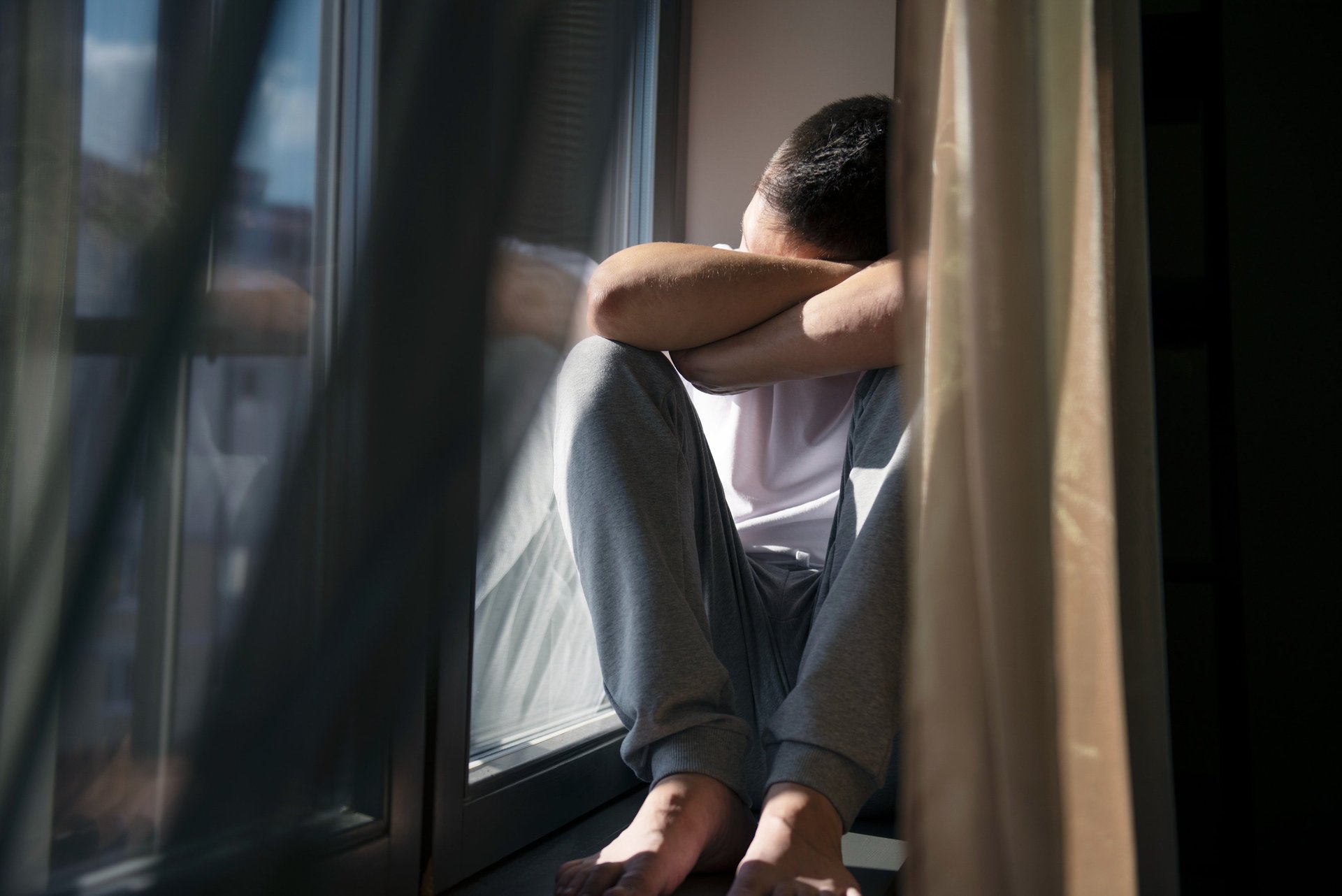Loneliness Epidemic: The Silent Crisis Impacting Mental Health
The loneliness epidemic has adverse effects on people’s mental health. Mental health can be improved by engaging in social activities.
Faiza Zulfiqar
8/29/20246 min read


We might think that we are now more connected than ever in today’s world. In the present era, through social media, instant messaging, and video calls, we can talk to anyone anytime. However, the number of lonely and isolated individuals is still increasing. It is a growing problem known as the “loneliness epidemic”, which is already affecting our mental health.
What Is the Loneliness Epidemic?
The loneliness epidemic is the phenomenon that refers to the feelings of social isolation more frequently in modern society. There are more lonely individuals than ever before, while authentic interpersonal relationships are seen less and less. The loneliness epidemic is now a common issue for all ages from young adults, and middle-aged people to the elderly, and is leading to long-term mental health problems across the world.
The sad part is that in our society full of technology, people do not have profound interpersonal connections. We swipe our fingers mindlessly through news feeds, and observe our friends’ lives, but sometimes seem to have no connection with them. Social isolation can affect anyone including people who seem to have a lot of friends. This is a growing problem and is commonly described as the “silent epidemic” because many people experience loneliness, but do not outwardly express it.
When Did the Loneliness Epidemic Start?
The loneliness epidemic did not emerge in recent years as it took many years and several social changes to shape the world into what it is today. For decades this moment has been brewing. The cause of this kind of crisis can be associated with several significant shifts in society, which led to social isolation and weakened our sense of community:
Urbanization
When people shifted from compact rural areas into crowded urban centers, the extended families or communities that were common in rural areas, gradually disappeared, leading to increased social isolation, and leaving them with fewer friends.
Technology and Social Media
Of all the factors the use of social media has been a major cause that has contributed to the loneliness epidemic in the last two decades. One of the primary reasons is that we are now able to communicate through technology thus limiting direct personal contact and hence the formation of weak and superficial relationships which are not healthy for our mental health.
Globalization and Mobility
The fact that people are more likely to move either for work or for education, it has become difficult to maintain close relationships with family and old friends. This sense of disconnection is key to feeding the loneliness epidemic and increasing feelings of social isolation even more.
Causes of the Loneliness Epidemic
The loneliness epidemic has several roots, and knowing these roots can help address the mental health problem that loneliness brings. The following are the causes of epidemic loneliness:
Overreliance on Technology
Though technology allows for fast communication, it rarely has the personal feeling of speaking to someone face-to-face. The overreliance on social media contributes to social isolation where virtual relationships replace real-world connections, leaving people feeling emotionally disconnected.
Lack of Community Spaces
There has been the disappearance of community space in parks, libraries, and other neighborhood centers as society becomes more urbanized and focused on technology. The organization of communities and communal areas has reduced over the years, and individuals find it difficult to interact and make new friends, hence, contributing to the loneliness epidemic.
Cultural Shifts
In many societies, there is a shift of focus and a rise of individualism and self-reliance. Such a shift in cultural values can make people think that they have to deal with their feelings including loneliness on their own, which only leads to increased social isolation.
Work and Lifestyle Demands
Individuals are working many hours and have several responsibilities, consequently, they do not spend lots of time on social interactions. As much as individuals strive to attain career success and personal achievement they end up lonely because they fail to foster relationships.
Changing Family Structures
Presently there are changes in family structures, with more individuals living single, or delaying marriage, and there is a decline in traditional support systems. Lack of family relationships makes people feel more and more lonely, which is contributing to the loneliness epidemic.


Loneliness Epidemic: Men vs. Women
The loneliness epidemic impacts both men and women, but it affects them in different ways:
Women
Females are often found to have more social contacts but may still feel lonely. This is because women tend to prioritize emotional support and deep relationships, and when they lack such, their mental health is likely to suffer. This sense of emotional deprivation has the potential to aggravate anxiety and depression symptoms.
Men
On the other hand, men may not express loneliness as frequently but in general, men have fewer close friends or emotional support systems. Societal expectations limit men from displaying any form of weakness, and this hinders them from developing deep and meaningful relationships. For men, the lack of emotional outlets may lead to unhealthy behaviors including substance abuse or withdrawal, which is detrimental to their mental health.
The problem of loneliness epidemic is present for both genders, and it remains a threat to everyone’s well-being, which is why it is critical to focus on the problem to enhance the efficacy of interventions and mental health outcomes.
How Loneliness Affects Mental Health
The loneliness epidemic doesn’t only affect your social life, it can dramatically affect your mental health. Social isolation is a well-known risk factor for many mental illnesses, including depression, anxiety, and even suicidal thoughts. Here are some ways the impact of loneliness affects mental health:
Increased Risk of Depression:
Chronic loneliness makes people prone to constant feelings of sadness or hopelessness. They are socially isolated and have no one to turn to for emotional support; this leads to depression and contributes to social isolation.
Heightened Anxiety
If a person spends a lot of time on their own, he is likely to develop increased anxiety, particularly in social situations. The constant feeling of being disconnected creates a fear of rejection or failure when interacting with others and it leads to increased social anxiety.
Sleep Disturbances
Other effects of loneliness include the interruption of sleep leading to tiredness and irritability. Eventually, a lack of sleep can cause mental health issues to become worse, including anxiety and depression.
Reduced Coping Skills
Facing challenges in life alone makes them appear more difficult to tackle. Without this support system, the person cannot manage stress and turns to other unhealthy ways such as substance abuse or withdrawal from social interactions.


Digital Age and the Loneliness Epidemic
Ironically, social media and technology that were intended to bring people together have made the loneliness epidemic worse. Instead of face-to-face conversations, many people settle for virtual interactions, although this does not fulfill their emotional needs. This absence of genuine relationships causes social loneliness and affects mental health negatively.
In addition, the constant need to check social media due to FOMO (fear of missing out) increases feelings of loneliness. Witnessing other people happy in life on social media may make people feel they are the only ones who feel lonely, which makes the sense of isolation worse.
Strategies for Coping Loneliness Epidemic
The loneliness epidemic is real however taking action can help address it as well as enhance your mental health. Here are strategies for coping with loneliness:
Reach Out to Loved Ones
Initiate getting back in touch with your loved ones and close friends. A phone call or even a text message may not only make a big difference but also foster stronger relationships.
Join Groups or Clubs
Joining clubs and other groups can also help form new friendships because people with similar interests are usually more accepting. In time, such random contacts can transform into deep and strong relationships that negate loneliness.
Volunteer in Your Community
Volunteering allows you to interact with people while also making a positive impact on society. One of the most effective ways to minimize loneliness is to help others.
Limit Social Media
Cutting down the time spent using social networks and focusing on face-to-face communication helps to fight loneliness. Arrange actual face-to-face meetings with friends, or talk to people in real life by using video or phone calls.
Practice Self-Care
Self-compassion is critical. Sometimes, loneliness can make a person develop negative self-talk so it is necessary to be kind to yourself. Concentrate on those things that are good for the health of the mind and body, which can improve your mental health.
Seek Professional Help
If loneliness is getting too intense, one should consult a therapist or counselor. They can advise how to deal with the situation and assist you with social isolation.
Breaking the Silence Around Loneliness
The stigma that is attached to the loneliness epidemic must also be discussed. Admitting feelings of loneliness shouldn’t be a source of shame. Thus, by openly discussing our experiences, we can help to break the silence and provide support to people who suffer from similar emotions and feel like they are alone in their fight.
Conclusion
The loneliness epidemic is a developing crisis that has adverse effects on people’s mental health. With loneliness being a silent struggle for many of us, it’s crucial to note that you are not alone in this battle. We can improve our mental health by engaging in social activities and overcoming social isolation.
